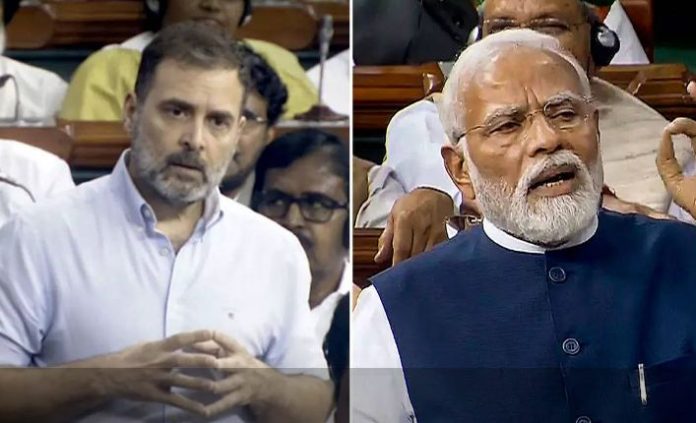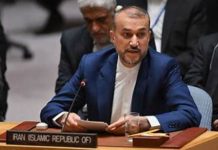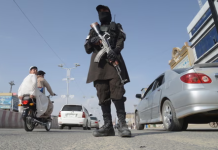New Delhi, JUL 3: The Indian parliament was the centre of an amazing confrontation between Prime Minister Narendra Modi and the administration, led by opposition leader Rahul Gandhi.
The tone for the next five years of legislative proceedings was established by the Indian premier’s two-hour speech, delivered in the face of heckling and full of scathing criticism and personal jabs.
Rahul Gandhi’s bold attack
Rahul Gandhi made his first address as the opposition leader and kicked off the altercation. He used the situation to corner the administration, raising several topics and even making fun of the prime minister. After receiving great attention for his speech, Prime Minister Modi took an unusual decision to step in.
Modi’s reaction
Chaos erupted during PM Modi’s speech, which was a response to the motion of appreciation to the president’s address. The prime minister was put in a difficult situation by the shouting and chanting of opposition MPs. In contrast to his earlier speeches, he had to wear headphones to drown out the cacophony.
Throughout his speech, Modi made frequent and pointed jabs at the opposition, focusing especially—though not directly—on Rahul Gandhi. He alluded to Gandhi by using the term “balak buddhi,” which means immature behaviour. He even used dialogue from the Bollywood hit “Sholay” to make fun of the Congress.
Important issues
The prime minister addressed several important topics, such as the controversial NEET exam and the repeal of Article 370 in Indian Illegally Occupied Jammu and Kashmir (IIOJK).
Nevertheless, despite opposition MPs yelling “Manipur” during his speech, he made no mention of the current bloodshed in that state. In an open letter to the prime minister, Rahul Gandhi requested a discussion on the violence in Manipur and is awaiting a reply from the administration.
A new era in parliamentary dynamics
The Indian legislative dynamics have seen a notable shift in the last two days. The opposition is stronger now than it was in 2014 and 2019, which means the government will face more difficulties. This could result in the prime minister directly addressing the opposition more often.
Parliamentary processes often involve interruption, but the major emphasis needs to be on productive work. The parliament is financed by taxpayers, and both the ruling party and the opposition must guarantee that debates are fruitful. For the sake of the country, discussion and cooperation must coexist.

















